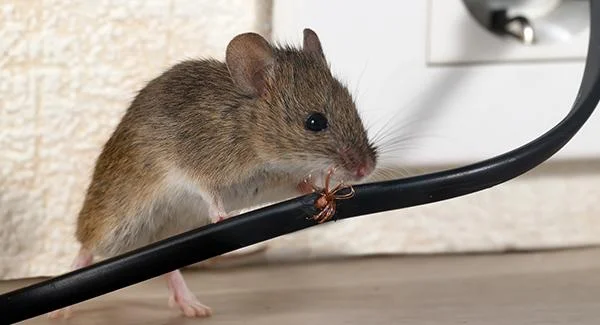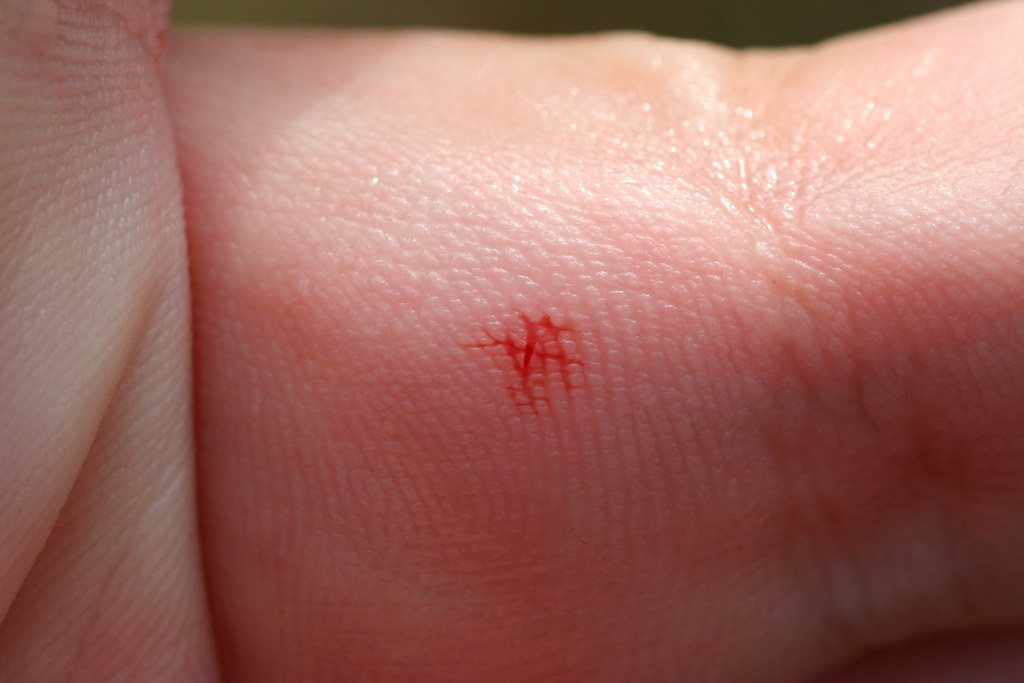Mouse bites, though small, can lead to significant health concerns if not treated properly. Whether you’re dealing with a rodent infestation or handling traps, understanding the risks and treatment of mouse bite marks is essential. In this article, we will cover everything from the causes of mouse bites to how you can treat and prevent them effectively.

1. What is a Mouse Bite?
A mouse bite occurs when a mouse’s sharp teeth puncture the skin, usually from an attempt to escape or defend itself. Mice often bite when they feel cornered, threatened, or startled. Though the bites are usually small, they can cause infections if not cleaned and treated properly.
Baby Mouse vs Baby Rat: Which is the Best Pet for You?
2. Why Do Mice Bite?
Mice typically bite humans for several reasons:
- Feeling Threatened: If a mouse is startled or feels trapped, it might bite to defend itself.
- Search for Food: Mice are often attracted to food and may bite if they feel they are in danger while eating or searching for food.
- Accidental Encounters: In some cases, mice may bite humans when they come into contact in dark, cramped spaces where the mouse feels safe.
3. Signs and Symptoms of Mouse Bites
Mouse bite marks usually exhibit the following symptoms:
- Pain and Redness: The bite area will often be red and sore.
- Swelling: Inflammation around the bite is common.
- Bleeding: Minor bleeding can occur with the bite.
- Itching: The bite may itch as it heals.
- Infection Symptoms: If the bite becomes infected, symptoms may include pus, increased redness, or fever.
4. Health Risks of Mouse Bites
Although most mouse bites are not dangerous, there are several health risks to be aware of:
- Infections: Mice carry bacteria like Salmonella and Leptospira that can cause infection if the bite is not treated properly.
- Rat-Bite Fever: Although rare, mice can transmit rat-bite fever, leading to fever and joint pain.
- Tetanus: A deep puncture from a mouse bite can increase the risk of tetanus infection.

5. How to Treat a Mouse Bite
If you get bitten by a mouse, follow these steps:
- Clean the Bite: Wash the bite with soap and water to remove any bacteria.
- Apply Antiseptic: Disinfect the bite with hydrogen peroxide or iodine.
- Stop Bleeding: Apply gentle pressure with a clean cloth or bandage.
- Apply Antibiotic Ointment: Use an over-the-counter antibiotic ointment to prevent infection.
- Cover with a Bandage: Protect the area with a sterile bandage.
- Monitor for Infection: Watch for symptoms like swelling, pus, or fever, and seek medical attention if necessary.
6. How to Prevent Mouse Bites
Preventing mouse bites involves controlling rodent access and being cautious when handling traps:
- Seal Entry Points: Close any gaps or holes where mice might enter your home.
- Store Food Properly: Keep food in sealed containers to avoid attracting mice.
- Use Traps: Set mouse traps but wear gloves to handle them safely.
- Maintain Cleanliness: Remove any crumbs or food scraps that might invite mice.
7. Mouse Bite Marks: Specifications & Features
| Feature | Details |
|---|---|
| Bite Appearance | Small puncture wound or scratch |
| Typical Size | 1-2 mm in diameter |
| Pain Level | Mild to moderate, depending on the severity of the bite |
| Bleeding | Minor bleeding |
| Infection Risk | High, especially if not cleaned properly |
| Treatment | Clean, disinfect, apply antibiotic ointment, bandage |
| Prevention | Seal gaps, store food properly, set traps, wear gloves |
| Symptoms of Infection | Redness, swelling, pus formation, fever |
| Medical Attention | Seek medical help if fever or severe infection develops |
FAQs
Q1: Are mouse bites dangerous?
While not always dangerous, mouse bites can lead to infections or more severe conditions if not treated.
Q2: How can I tell if a mouse bite is infected?
Look for signs of increased redness, swelling, pus, or fever. If these symptoms appear, seek medical attention immediately.
Q3: Can I treat a mouse bite at home?
Yes, most mouse bites can be treated at home with proper cleaning and antibiotic ointment. However, if symptoms worsen, consult a doctor.
Q4: How can I avoid getting bitten by a mouse?
Seal all gaps in your home, store food securely, and use traps with caution to prevent mouse bites.
Q5: Should I be concerned about rat-bite fever from a mouse?
While rare, rat-bite fever can occur from a mouse bite. If you develop a fever or joint pain, see a doctor for diagnosis and treatment.
Conclusion
Mouse bites may seem minor, but they can lead to health risks if not addressed properly. By understanding the causes, symptoms, and treatment options for mouse bites, you can protect yourself and prevent infections. Follow the preventive measures and treat bites promptly to ensure your health remains unaffected by these common but sometimes dangerous encounters with rodents.
More Read=What Does a Mouse Bite Look Like?